More on the Difference between Science Fiction and Fantasy
 I wrote my original post on this subject in April 2012. At the time, I realized that some people were hazy on the distinction between these two genres of speculative fiction, but I had no idea it was controversial. I’m still not sure it is, but the question can certainly lead to some heated debate if you stray from the main subject far enough. This is what happened in a Goodreads SciFi and Fantasy Book Club member’s chat entitled, innocuously enough, Fantasy vs Science Fiction. Who knew such a question could be so divisive?
I wrote my original post on this subject in April 2012. At the time, I realized that some people were hazy on the distinction between these two genres of speculative fiction, but I had no idea it was controversial. I’m still not sure it is, but the question can certainly lead to some heated debate if you stray from the main subject far enough. This is what happened in a Goodreads SciFi and Fantasy Book Club member’s chat entitled, innocuously enough, Fantasy vs Science Fiction. Who knew such a question could be so divisive?
The Goodreads discussion began on December 8, 2012 with this innocent enough distinction:
- Fantasy – magic and/or supernatural creatures and/or a made-up world
- Science fiction – advanced technology (usually set in the future)
That was over ten months ago, and the thread briefly returned to sanity the past weekend after a few months abroad, although I fear it may reverse course yet again. The discussion continues. It is now the length of an epic novel. I’m not kidding. By copying and pasting one page to Word and having it count the number of words, and then multiplying that by the number of pages, I estimated there were over 126,000 words in the posts that are still showing. Depending on the font and page size, this could be as much as 500 pages in a novel, and it does not count the posts written by one of the more active participants, which he afterwards deleted (but I’m getting ahead of myself).
In general, the above definitions provide a fair generalization, and most people agreed on the basic distinction between the two genres. Participants in the discussion offered quotes and aphorisms both famous and obscure, such as:
- “…science fiction, given its grounding in science, is possible; fantasy, which has no grounding in reality, is not.” ~ Isaac Asimov
- “It’s been said that science fiction and fantasy are two different things: science fiction: the improbable made possible; fantasy: the impossible made probable…” ~ Rod Serling, The Twilight Zone
- “Succinctly: there’s discontinuity between our reality and fantasy; there’s continuity between our reality and science fiction.” ~ Robert J. Sawyer
- “A true SF writer is allowed only one unexplained scientific ‘miracle’ per story. Beyond that, SF becomes Fantasy.” ~ A few people participating were familiar with this or something much like it, but no one was entirely sure where it originated.
But wait a second. Don’t those definitions reflect a Western bias toward science (as one participant suggested)?
I don’t personally think so. Science may not be the only method of understanding the world we live in, but it works better than reading entrails, trying to see portents in the positions of stars, prophecies of various kinds, and all the other stuff people have used. This may seem like a cultural bias, but it’s just a recognition of what has worked reasonably well (so far) and what hasn’t. But that’s not really the point. Science fiction implies the use of science. That’s what makes it science fiction.
There seemed to be no violent disagreement over this, so why did the discussion go on?
Well, one of the problems soon becomes obvious when you try to apply the definitions to actual books. People brought up examples of stories they suspected might exist in a gray area between the two. There may be a reasonably clear academic difference between science fiction and fantasy, but it is often difficult to assign one label or the other to a specific story. This is because authors mix genres. One work of speculative fiction may include both science fiction and fantasy elements (along with romance, history, and other things). In cases like this, what genre best applies?
(The discussion did not unfold as linearly as the following account may suggest, but it remained civil… for the most part… at first.)
There was some discussion about what should be considered ‘science’ in science fiction. Some argued that FTL (faster than light) vehicles, time travel, antigravity, and other highly speculative technology should be considered fantasy because they are probably impossible. These, they claimed, were no more ‘scientific’ than hobbits, demons, or dragons. A related point was that since our understanding of reality is imperfect, we can’t know for sure what is possible.
Someone suggested the concept of a continuous line between science fiction and fantasy, that many speculative fiction stories fall somewhere between the two ends, and therefore could be placed in either genre. Others disagreed. They insisted that it is simple to make a clear call by being stringent about the exclusion of fantasy elements in science fiction. It seemed to bother no one to have a fantasy story include science-like elements, but some people argued that once an element of fantasy entered a science fiction story, that story should be considered fantasy, rather the way adding one red towel to a wash-load of white towels turns everything pink. Such stories could, however, possibly be labeled in a subgenre of fantasy such as ‘science-fantasy.’
There was some talk about the relationship of science fiction and fantasy to other genres, including romance, horror, comedy, and even history and religion. Once religion entered the discussion, all hell broke loose (figuratively speaking). One participant (the one who originally brought religion into the discussion and who later deleted all of his posts) said a plot hinging on divine miracles should not make a fictional story fantasy because many people believe in them. I think that was the point he was trying to make, anyway. It was never clear to most of us, but he did succeed in diverting the conversation onto religion for a long time and ended up repeatedly insulting a number of other people. Finally, a moderator intervened and he went away. That was a few days ago. The discussion became far more sedate after this, but he returned on Tuesday and things got lively for a while. The moderator intervened again early Wednesday morning. The poster deleted all his new posts and the moderator banned further references to religious texts from the discussion.
I think part of the problem, as someone in the forum pointed out, was that different people were using the same words but held different ideas about what they meant. That made sense to me, so I provided the following definitions from Wikipedia: (It’s not a definitive reference source, but it’s the first one that came up, and I felt that the definitions I found there would suffice.)
‘Science (from Latin scientia, meaning “knowledge”) is a systematic enterprise that builds and organizes knowledge in the form of testable explanations and predictions about the universe.’
The same source defines fiction as ‘the form of any work that deals, in part or in whole, with information or events that are not real, but rather, imaginary and theoretical—that is, invented by the author.’
At the time, I did not feel it was necessary to define fantasy, but for the sake of thoroughness, I’ll do so now (again using Wikipedia). ‘Fantasy is a genre of fiction that commonly uses magic and other supernatural phenomena as a primary plot element, theme, or setting. Many works within the genre take place in imaginary worlds where magic and magical creatures are common. Fantasy is generally distinguished from the genres of science fiction and horror by the expectation that it steers clear of scientific and macabre themes, respectively, though there is a great deal of overlap between the three, all of which are subgenres of speculative fiction.’
I did not participate in any way in writing these definitions, but I do consider them a fine place to begin. Judging from recent experience, I suspect some people may find them controversial. I’m beginning to wonder if there is anything, no matter how straightforward, that enjoys universal agreement. Be that as it may, a word means what people agree it means. These definitions seem common enough, and I think they provide a way to better define what can be considered science fiction and, by exclusion, what can be considered fantasy.
First of all, I want to stress that the two things we are differentiating are categories of fiction. They are made up. They aren’t real. Some confusion may have occurred in the Goodreads discussion because the word ‘fantasy’ is also used as an antonym of ‘reality,’ and so, by implication, science fiction should be more ‘real’ than fantasy. The question we were attempting to answer wasn’t about fantasy as opposed to reality, though, but fantasy as a genre of fiction. While it is true that science fiction must be grounded in science whereas fantasy can float free of any anchor to mundane reality, this does not imply that everything in science fiction must be possible or that everything in fantasy must be impossible. Both are fiction. They both tell stories about people and things that do not exist, things that may not even be able to exist. This is true for both genres. (Yes, I’m disagreeing with the late great Isaac Asimov on this. It’s not something I do lightly, but I have a reason.)
To define science fiction, it’s important to understand what science is and what it is not. Science is not a collection of known facts. It is a process for revealing facts about the cosmos, or at least for identifying things that can be regarded as true. The popularity of an idea or the number of believers it has is irrelevant. That’s not how science works.
The defining characteristic of science as opposed to other ways of trying to understand the natural universe is the concept of systematic observation and testing, the scientific method, and this, I think, can provide the key for a clear distinction between science fiction and fantasy.
If, within the context of a story, it is stated or implied that all the fantastic things described—spaceships, androids, warp drive, whatever—came about using the procedures of science, it can be science fiction. In the world of the story, these things are natural (as opposed to supernatural) and explicable to science. Science fiction requires an anchor in this world, but to insist that everything in science fiction should be possible, some even argue probable, is far too restrictive, I think.
Fantasy, on the other hand, can include anything—magic wands, dragons, mystical powers—anything, without any implication of how they came to be or how they relate to the world the reader calls home. In this sense, science fiction is more restrictive than fantasy.
But this allows things that are clearly impossible to enter science fiction. Surely that can’t be right, right?
Remember, this is fiction. Impossible things happen all the time in all genres of fiction, and we may not even notice. Take, for example, a car exploding after a crash. You’ve probably seen it a hundred times. But you’ve seen it in fiction. In the real world, a car might catch fire, but unless there’s a bomb (or explosive chemicals or the like) inside, it’s not going to explode. The probability of the events described in a speculative fiction story happening in the real world is irrelevant. The story doesn’t take place in the real world. But the rules of science must apply within the context of the fictional story for it to be considered science fiction because those rules are science. Without them, the scientific element of the story does not exist and it’s not science fiction.
But this leads to another point. Not all science fiction is created equal. If something in a science fiction story violates the Second Law of Thermodynamics, it’s almost certainly bad science, which means it’s probably bad science fiction, although not everyone is going to notice, just as they don’t notice that cars don’t explode on their own outside of stories. Sometimes a bit of scientific implausibility does not hurt. If an author wants to include dragons of the big, fire-breathing and flying variety in a book, and provides techno-babble to explain how this is possible, many readers will let it pass. An aeronautical engineer probably won’t, but that does not mean it’s not science fiction. It may even be a great story. But take the example of clockwork robots winding themselves (or one another for that matter). I’ve actually seen this in a couple stories. The fact that this is scientifically impossible does not, by itself, mean that the story is not science fiction, but it does suggest that it is not good science fiction. It goes from scientifically implausible, which I’m willing to let pass for the sake of an otherwise good story, to scientifically impossible, which I’m usually not, with one notable exception. If the science fiction story is intended to be funny or intentionally absurd, then I’m Okay with scientific impossibilities for the sake of humor. Scientifically impossible things in a humorous novel remind us that the story is just a story. It doesn’t take itself seriously and neither should the reader.
So, what’s the bottom line? Well, two short proposed definitions:
- Fantasy is a subgenre of speculative fiction that includes forces or entities for which no natural and testable explanation is implied within the context of the story.
- Science fiction is a subgenre of speculative fiction that includes creatures or technologies of a speculative nature that are governed by natural laws based on those of the real world and which are scientifically explicable within the context of the story.
What I tried to do here is separate the two genres, making the application of science the key differentiating point while still allowing for highly speculative and varied worlds to be included in the realm of science fiction. I’m not sure if I’ve succeeded, but I am sure this won’t end the discussion.
Related Post: The Difference Between Science Fiction and Fantasy
For Further Reading: The Difference Between Science Fiction and Fantasy? (by David Brin)
Posted on October 15, 2013, in Fantasy, Science Fiction, Speculative Fiction, Thoughts and Observations and tagged definitions, differences, Fantasy, science fiction. Bookmark the permalink. 6 Comments.
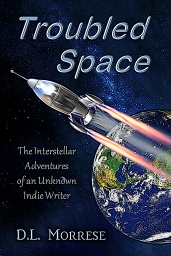
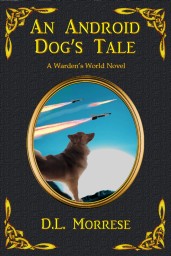
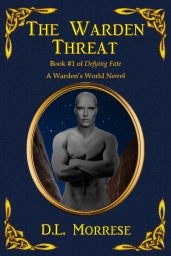
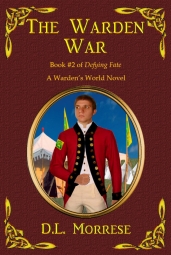

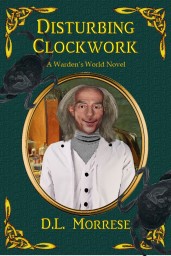
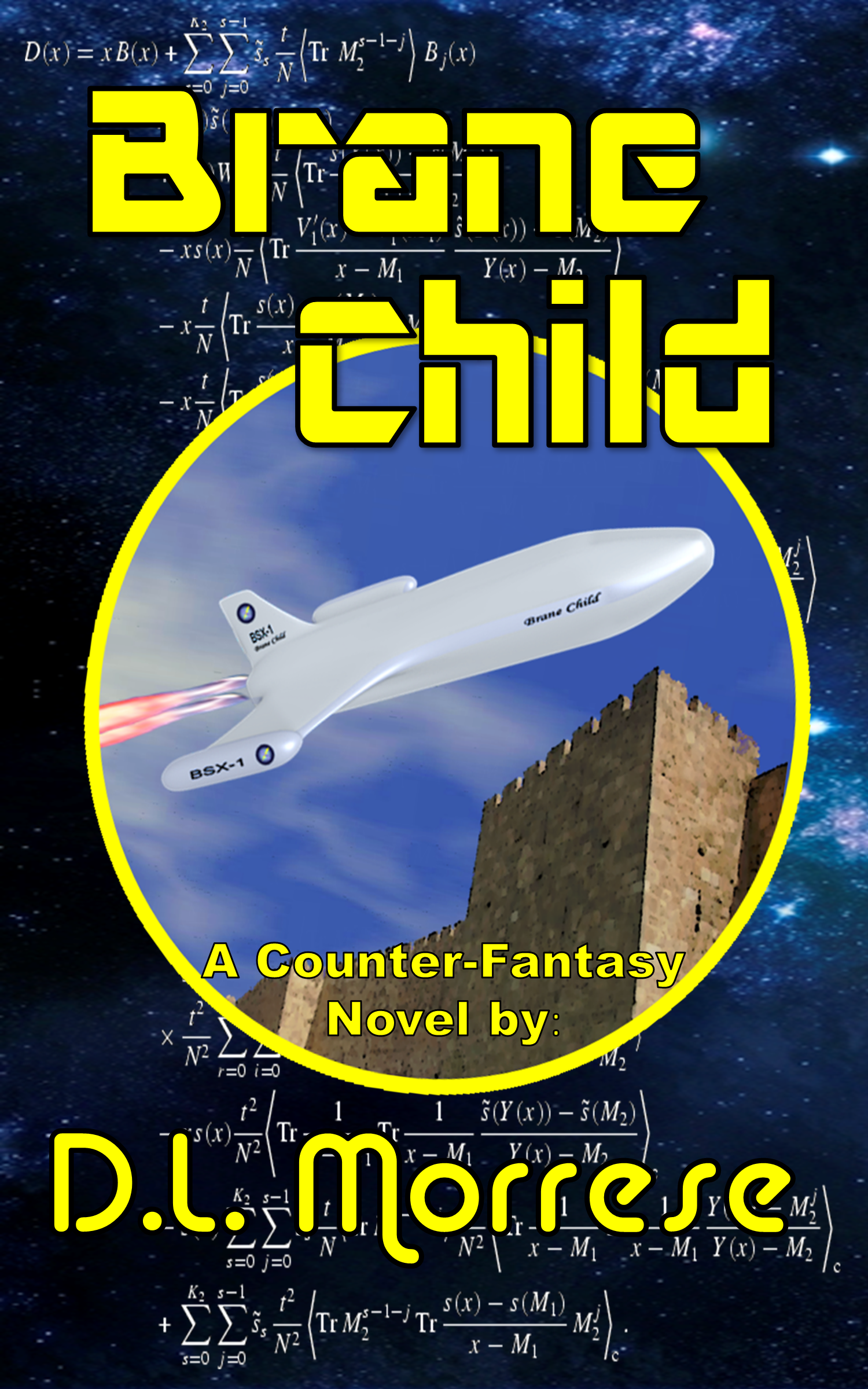




Interesting. I just a read a little of the debate, and put my own two cents in. What do you make of Star Wars (where there is no implicit or explicit attempt to explain the Force as scientific), and of Mistborn (where there is an exploration of the magic system that runs on what appear to be electromagnetism-like physics, but also has shapeshifters with little/no conservation of energy/mass)?
I suspect Lucas intended Star Wars to be a fairy tale with spaceships. That’s why he opened it with “A long time ago in a galaxy far away…”, which is obviously a slight rewording of the classic beginning, “Once upon a time in a land far away”. If forced to label it, I might call it ‘science fantasy’. Mistborn is pure fantasy. The burning metals thing, the godlike Harmony, and, as you say, the slug-like beings that can assume other shapes by engulfing bones don’t have any rational, scientific basis.
A very interesting discussion. I write both SF and Fantasy, and sometimes veer across the line in one direction or the other. I have two novels that I label “Science-Fiction-Flavored Fantasy.” Once upon a time there was a spaceship full of witches … and by feeding a magic potion (instead of rocket fuel) to the engines, they were able to achieve FTL travel (sort of a Wiccan Warp drive). Or in another story, a physicist working on an artificial wormhole gets sucked in and finds herself in a world where magic works. It’s so much more fun when you don’t have to confine yourself strictly to one genre or the other …
Pingback: What is Counter-Fantasy? | DL Morrese
Pingback: The Difference between Science Fiction and Fantasy | DL Morrese
Pingback: More on the Difference between Science Fiction and Fantasy | Todd DeanTodd Dean